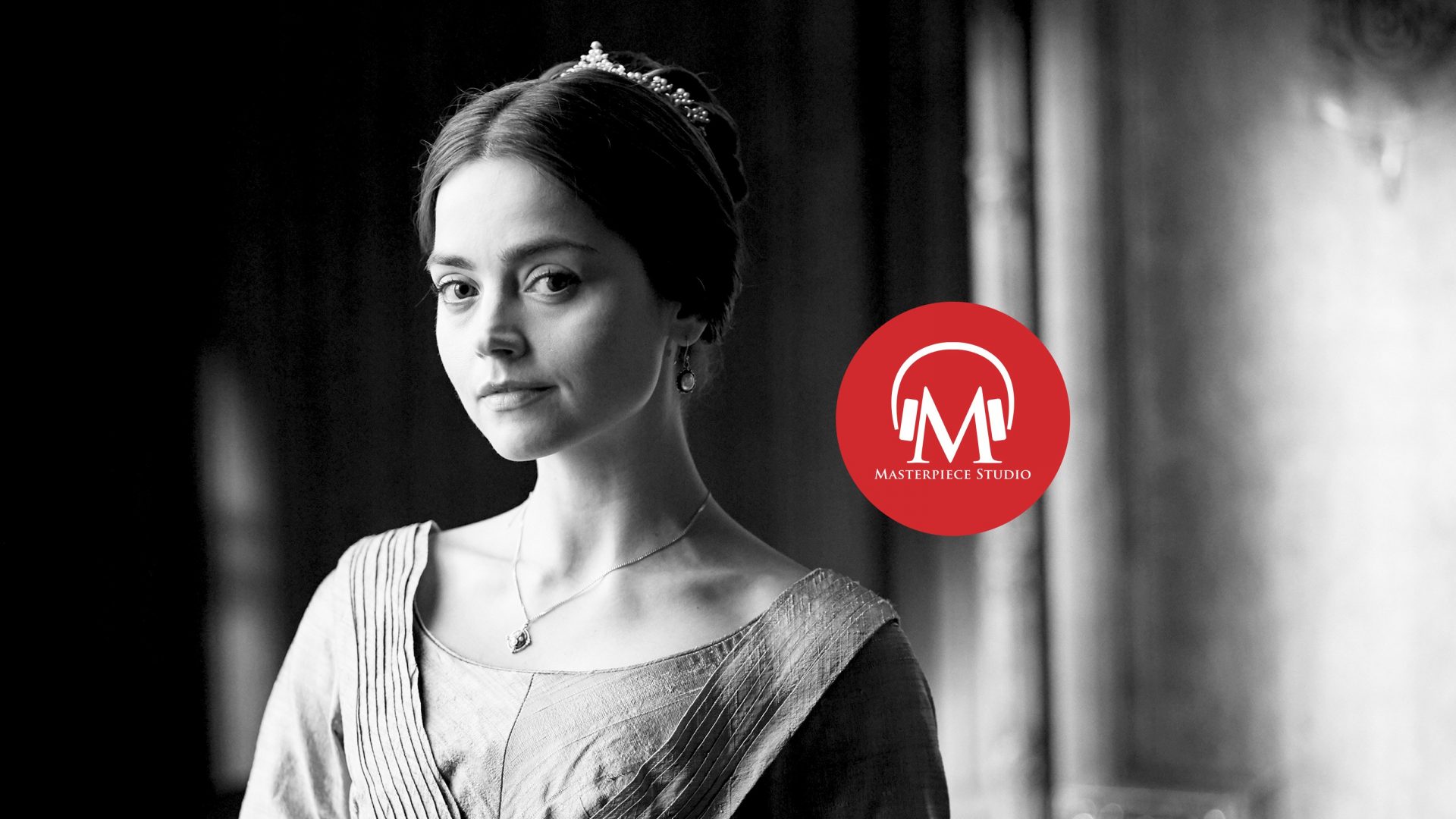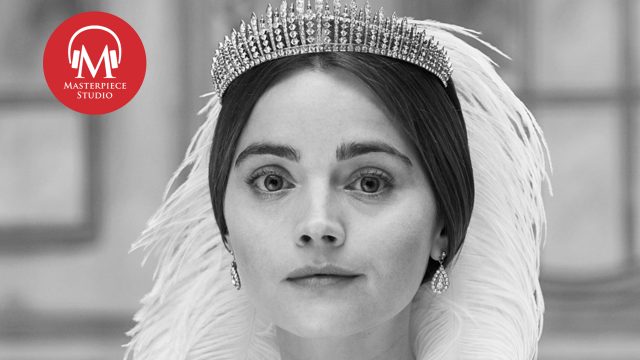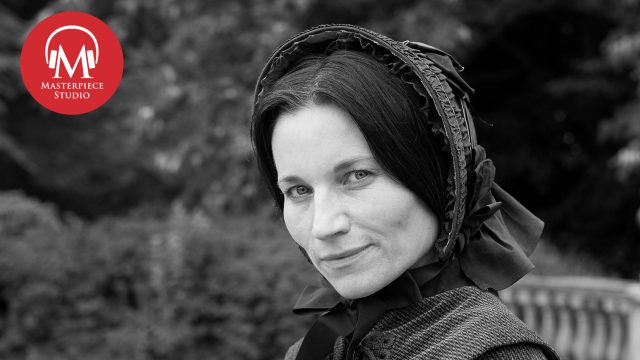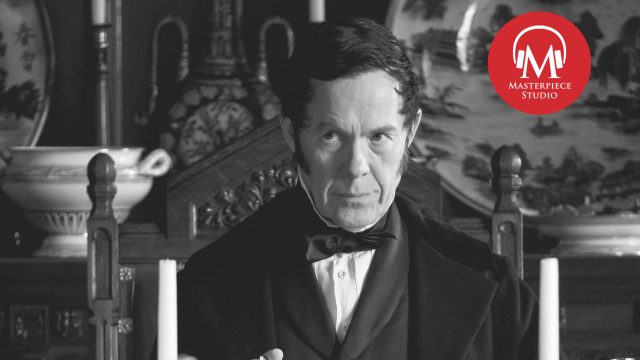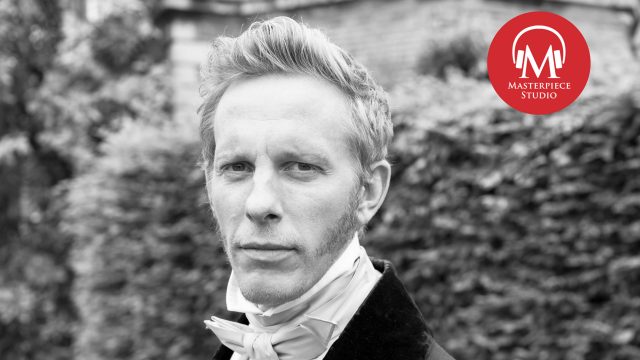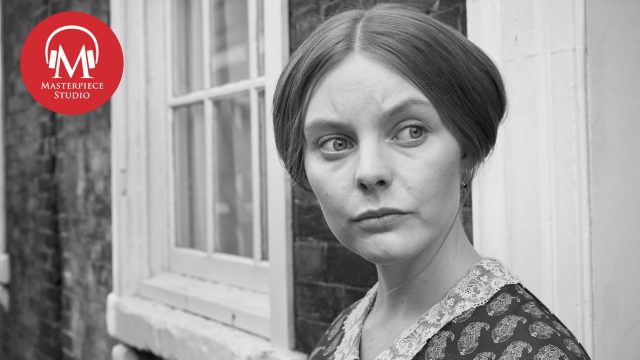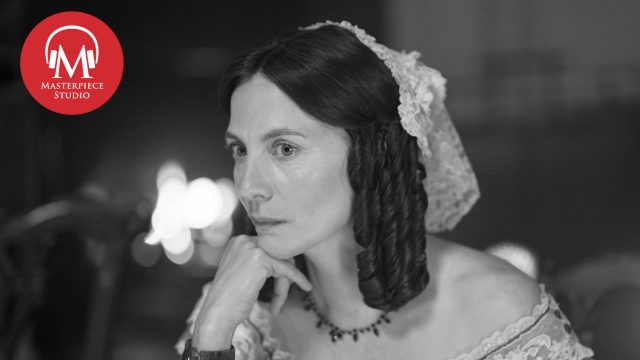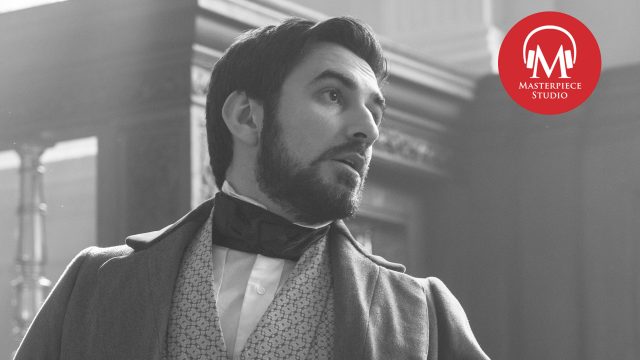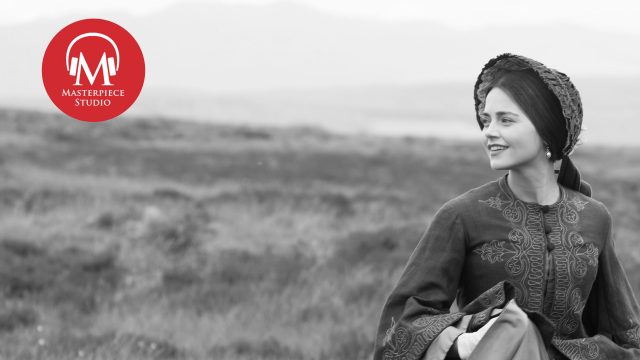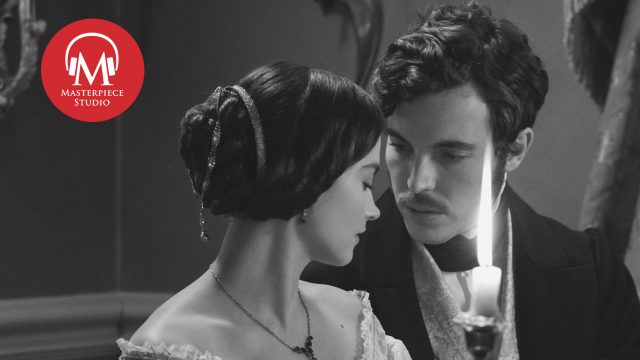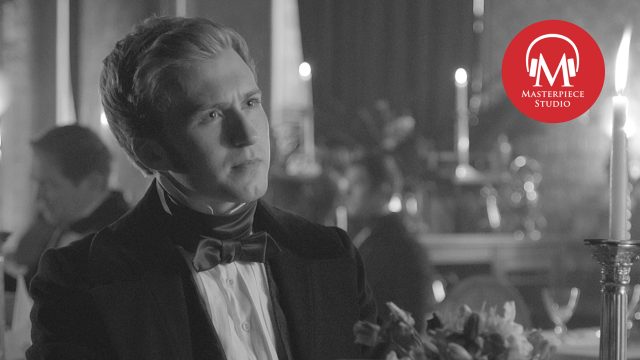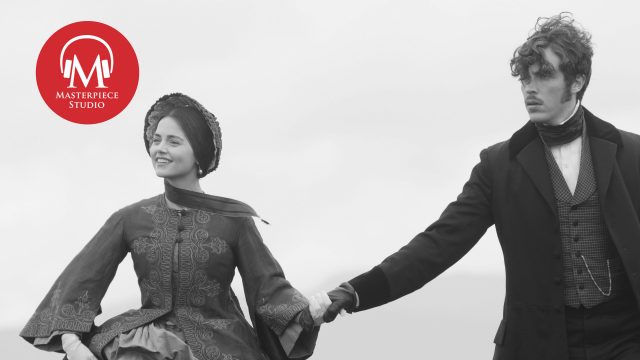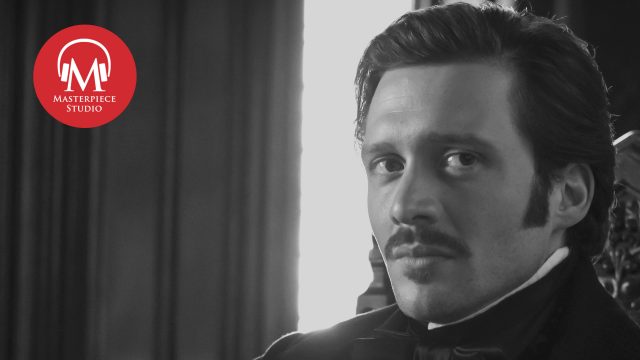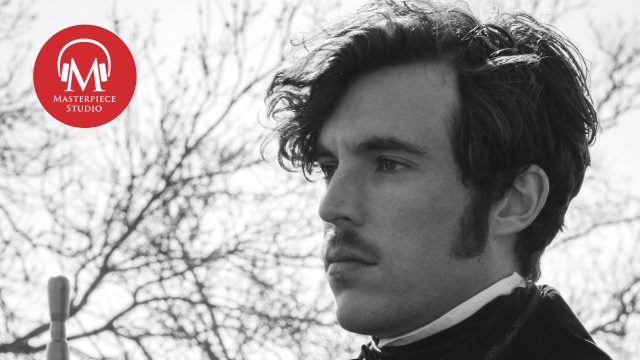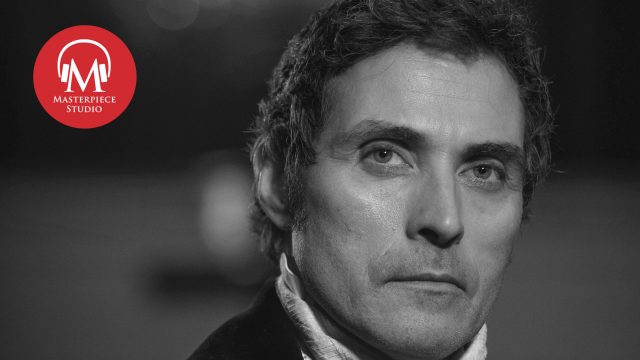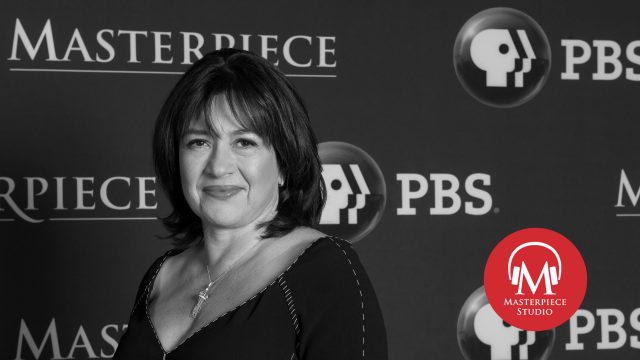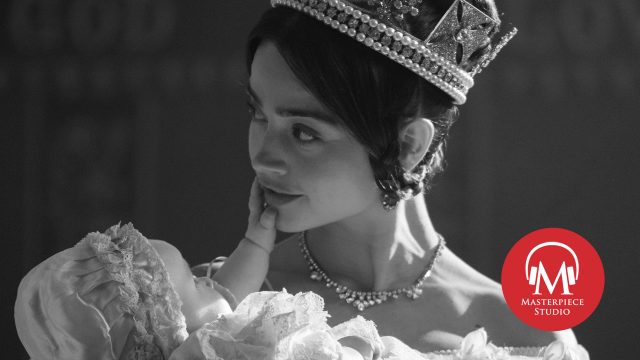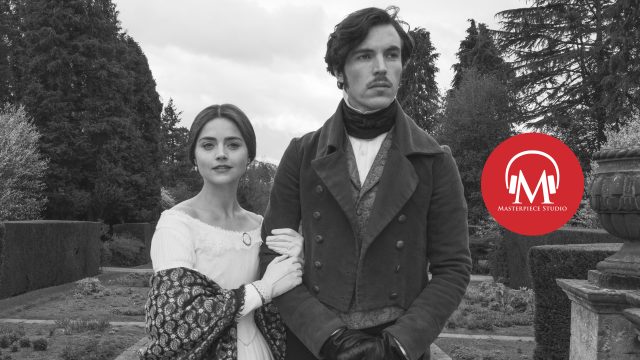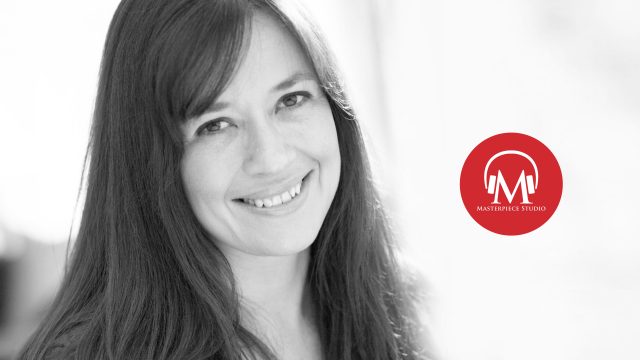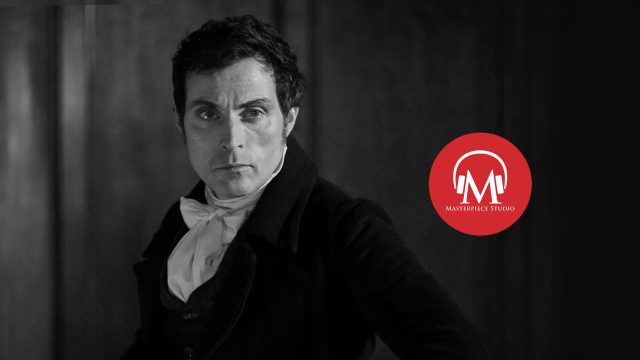Jace Lacob (Jace): We’re going to be taking you inside the first episode of MASTERPIECE’s brand new series, Victoria. But be aware — listeners who haven’t yet seen the premiere will hear behind-the-scenes stories, insight into 19th century history, and lots of spoilers.
MASTERPIECE Studio is brought to you by Viking Cruises. See the world differently by exploring differently. Learn more at vrc.com.
Jace: I’m Jace Lacob and you’re listening to MASTERPIECE Studio.
The King, William IV, is dead and his 18-year-old niece, Victoria, is next in line to succeed him, but doubts creep from all corners of the kingdom about whether or not the young queen is fit to rule.
CLIP:
Frederica: She is very young and rather delicate.
Cumberland: She seems incapable of taking care of the business of government.
Skerrett: She is small…
Edward: I hear her tongue is too big for her mouth.
Lord M: Every time she has a thought she expresses it. She’s too impulsive for a Queen.
Conroy: She will soon realize that she is out of her depth.
Jace: But Victoria is stronger, bolder than people think, and she isn’t afraid to assert her claim to the throne.
CLIP:
Victoria: I think you forget. Although I am young and perhaps ignorant, I am my father’s daughter, the granddaughter of a king, and I believe I should find my own way, and if I require advice I will ask for it.
Jace: Although Victoria began her rule over 170 years ago, her surviving diary entries, along with many other historical accounts, helped writer Daisy Goodwin and actor Jenna Coleman to bring the impassioned 18-year-old monarch to life.
CLIP:
Jenna Coleman: There’s a fire in her, which wants to prove everybody wrong, “I maybe 18, but I can do this.”
Jace: In this episode, Jenna Coleman takes us deeper into the mind of the fiery queen.
And then, Daisy Goodwin illuminates the history behind the biggest moments from the show.
Jace: Welcome.
Jenna Coleman (Jenna): Thank you.
Jace: So, you came to Victoria after ending your run as companion Clara Oswald on Doctor Who. What was it about this project that attracted you initially?
Jenna: It was interesting actually, because the one thing I was really convinced about when I left Who was that I didn’t want to get straight into another series (laughs). And then Daisy came along with Tom Vaughan, our director from the first three episodes, and took me out for lunch, and I just felt more and more intrigued by her, and compelled by her. And I think she’s hilarious as well, which I don’t think people really know. She’s old, and she’s stern, and she wears black, and it just makes you think “Actually, the story is waiting to be told.”
Jace: Now, Victoria arrives at a very interesting time in the world– after the Brexit vote, the UK having its first female Prime Minister since Margaret Thatcher in Theresa May. What does Victoria say about the challenges that female leaders have to face that their male counterparts don’t?
Jenna: Daisy made a really interesting point yesterday. This is at a time when women didn’t have the vote, where if you were pregnant, there was a 65% chance of death during childbirth; the times were, were very, very different. And obviously this is a role, something that she inherited, that she was born into, but trying to navigate being 4′ 11″, being 18, and then having to navigate being the most powerful woman in the world, literally overnight, having never spent a night in your own bedroom alone, it’s absolutely shocking to even think about.
And also, surrounded by people, advisors that she couldn’t trust that she had to, you know… It’s kind of a chess game really. And luckily Lord Melbourne was prime minister when she came into power.
Jace: Good, old Lord M.
Jenna: Good, old Lord M.
Jace: She is a virtual prisoner of the Kensington System imposed by her mother and Sir John Conroy.
CLIP:
Sir John: This is not a game. In future, you must be accompanied by your mother or me.
Jace: Why are her mother and Sir John trying to control her so much?
Jenna: Because for power, and also, I think that they, from what I’ve read, they treated her like a child a lot, and like a pawn, and felt that she wasn’t ready to be queen, that she couldn’t do it, that she wasn’t capable, and that she needed a man, she needed advisors. And I don’t think they realized the more and more they did that more alienated from them she became.
But it was for power. They wanted her to sign a regency so that the power would be in their hands up until the age of 21.
Jace: I love the scene where she finds her voice, and her agency in front of the Privy Council.
CLIP:
Victoria: I know that I am young and some would say my sex puts me at a disadvantage, but I know my duty, and I assure you that I am ready for the great responsibility that lies before me.
Jace: Do you think she knew quite what a rocky she had ahead of her?
Jenna: No, I don’t think so. Not at that point. I think she was full of youthful optimism. And also, she’s the most stubborn person that I’ve ever read about. It’s probably the most common trait, which I see when Stockmar writes about her, Leopold, Melbourne. The big trait in her is her obstinacy. I think Melbourne said, “Once the Queen makes her mind about something, there is no unearthly power to make her go around; she will only go forward.” That’s just something I enjoy playing very much.
CLIP:
Peel: It is not my intention to deprive you of your friends, ma’am. Simply to ask you to be friendly to all.
Victoria: I absolutely will not give up my ladies, Sir Robert, and once more I believe you have no right to ask me.
Peel: Not even one?
Victoria: I think I’ve made myself clear.
Jenna: But I think on the page there’s sections in her diary where she says, “I maybe young and inexperienced, but I really believe that no one is as fit as I to rule this great nation.” And she’s really proud, and she takes her responsibility seriously, and there’s a purity there, I think, that comes with youth, that comes with when the odds are against you.
And so, it’s almost like the more people expected her to be unfit, the more she rallied against them. And that’s not to say she wasn’t wrong or failed in many ways, but I think that’s kind of what makes her human.
Jace: Now, Victoria says at one point she wishes she could dance with Lord M every night. How would you describe the relationship between Victoria and Lord Melbourne, which seems to vacillate between the romantic and the paternal?
Jenna: Yeah. It is. It’s a very intense relationship. It’s a unique relationship, and a beautiful one, I think, but it’s extremely blurred what it is.
They’re friends. They get on like a house on fire. Journal entries say, “She was up until 2:00 am drinking with Lord Melbourne,” and the two of them would just laugh, and their sense of humor… They just connected. I think, he was the first person who actually, genuinely supported her and gave her faith in her own voice, and in her own mind, and her instincts, and tried to guide her, but didn’t try to manipulate her, and everyone else had tried to manipulate, so instantly, there was this kinship.
CLIP:
Lord M: May I offer you condolences on the death of your uncle, Your Majesty.
Victoria: He was always kind to me, though he did have some strange ideas about who I should marry.
Lord M: I believe he favored the Prince of Orange.
Victoria: Prince with the head the size of a pumpkin.
Lord M: I see you have a keen eye for detail, ma’am.
Jenna: And there she’d grown up without a father. Lord Melbourne became a kind of father figure that kind of morphed into her everything, really. She was fixated by him.
Every journal entry was, “Lord M did this, and where is Lord M?” It was like a teenage fixation, I suppose, but she adored him as a friend, as a colleague, and as “half lovers,” it has been described as by Stockmar. Whether they were conscious of it or not, they had this special relationship.
CLIP:
Lord M: It’s true, your education may be lacking in some areas, but you have a natural dignity that cannot be learned.
Victoria: You don’t think I’m too short to be dignified.
Lord M: To me, ma’am, you are every inch a queen.
Jace: There’s a great deal made about Victoria’s small stature. Did her smallness make it easier for some to underestimate, and did she use that to her advantage?
Jenna: I think it absolutely made people underestimate her because… I mean, physically, you put me on set in front of the Privy Council and you see that dynamic, it instantly feels- it tells the story in a way. So, of course, I think that definitely comes into it, but she may have been 4′ 11″, but she had “veins of iron,” it has been described as.
And I’m not sure she did ever use it to her advantage. I’ve not really read anything like that or how particularly conscious she was of it other than her crown didn’t fit, the throne was too big for her; she had to get a miniature throne made. But we’ve kind of played more the sense of humor.
CLIP:
Lord M: Yes, I think before your first lever you should probably try to find a throne that fits.
Victoria: It is hard to be dignified when your feet are 6 inches from the floor.
Jenna: Interestingly though, going through Kensington Palace. I went to the exhibition, and people walk in, and the first… There’s two things everyone says about her — I was listening to what people were talking about — and they see her dresses, and instantly people are like, “Ah, she’s so tiny. I can’t believe it. Look how small. She looks like a child.” And if you see her dresses they are. She is absolutely minuscule. And then the second thing they say is, “Do you know when Albert died she remain in mourning for the rest of her life? And she wore black,” And it’s like the two common…
Jace: The two things.
Jenna: Yeah.
Jace: Before our next question, a brief message from our sponsors.
MASTERPIECE Studio is brought to you by Farmers Insurance and their eighty-eight years of experience, helping people so that they can prepare for the unexpected. They know a thing or two because they’ve seen a thing or two. Find an experienced agent at farmers.com.
MASTERPIECE Studio is also brought to you by Viking Cruises, exploring the world in comfort. Learn more at vrc.com
Jace: Now, one of the grandest scenes in this series so far is Victoria’s coronation at Westminster. Can you talk about shooting the scene and the sense of pomp and circumstance that went with it? Was it easy to feel regal in a scene like that?
Jenna: I mean, the coronation was pretty. My mom and grandma came to set that day, and that was like quite an amazing moment.
Jace: Wow.
Jenna: I kept dear her journal entry from that day. I kind of kept reading that over and over the day, which was “She’d woke up at 4:00 AM,” and actually again, it’s this… She woke up. She could hear the crowds outside. I love that relationship from, you know, hearing the people behind the walls through the windows of the walls of palace. We played with that quite a lot.
CLIP:
Victoria: Can you hear them? I am ready.
Jenna: She’s never been so proud to be queen of such a great nation. So, it’s kind of like keeping that pride, and that faith that she can do it, in a way.
I think, from all account she enjoyed the coronation, even though it was quite comical, and lots of things went wrong. The ring got stuck and put on the wrong finger, and apparently the whole thing was a little bit of a shambles, but… Lord Melbourne was in tears, apparently a little hungover as well (laughs).
But on the day we… I just had to do lots of imagining the crowds. None of the people obviously in the stands are there. None of the crowds outside. It’s me just looking into a green screen, and at our DOP (laughs).
But our director, Tom, we played the — I can’t remember the name of the song — but the really famous music and did it out loud through the speakers, in this big, empty cathedral, to make you buy it a bit more (laughs).
Jace: Believe it.
Jenna: Believe it yourself, yeah. I really, that I have to say it was because it was very swelling, and it was a great idea.
Jace: The coronation scene is very masterfully juxtaposed with the medical examination of Lady Flora, as if both women are no longer owners of their own bodies. What did you make of that scene when you read it in the script?
Jenna: When I read it — there was lots of things, actually — because when I read it I was like, “This is one of the greatest days in history. Are we…? Do we want to…?” Because in the timeline those two things never happened at the same time.
I felt like I wanted to make sure that we didn’t suggest that on the day that was she coronated Queen Victoria was thinking about Lady Flora. That actually was very important to make it stand alone, but adding them dramatically adding those two things together, I think, is so interesting of she’s becoming queen, and she thinks she’s ready, she’s so ready, yet she’s making this huge mistake, and the consequences of her actions, and the effects of Lady Flora in a very direct, and emotional way is the first of one of her many, many mistakes to come. So, having those two things together is- I think it worked really well. It’s really interesting.
Jace: Now, the deathbed scene with Lady Flora is particularly painful.
CLIP:
Victoria: Is there anything we can send you? Some peaches, perhaps?
Lady Flora: I am beyond peaches, ma’am.
Victoria: You mustn’t say that, Lady Flora. With rest and care…
Lady Flora: Everything I need is here.
Jace: What was it like filming that scene, and what does Victoria take from her encounter with Lady Flora?
Jenna: (Laughs) Well, it’s… Do you know what’s so funny is, initially the scene, because… This was actually one of my auditions scenes, and it was quite comical at the time, you know, Victoria saying, “Would you any peaches, perhaps?” and she’s on her dying bed, but she won’t apologize because she’s so stubborn, but she knows she’s wrong. And then obviously, as the drafts went on, and the more we got into it, and I walked into the room, and I was like, “This situation is awful.”
And Alice, who plays Lady Flora, plays it so beautifully and so well, and I just didn’t… You know, it’s a terrible, terrible situation to be in.
Jace: Victoria doesn’t crumble under the enormous pressure that is being put on her, and she, in fact, finds her strength, and she’s positively statuesque in her salute to the regiment, and then she goes and puts away her dolls as though she’s putting away all of her childish things. Does she finally accept her role here as a sovereign, the realization that…
Jenna: Yes.
Jace: … she needs to be past that?
Jenna: Yeah, I think she’s… She’s grown up. She’s grown, maybe not grown up, but grown in some way by the end of this, and accepted responsibility in a humble way, I think, of actually, “This isn’t plain sailing. This, this is the responsibility that is on her shoulder she kind of needs to rise to,” and actually instead of fighting is more humbled by, perhaps.
CLIP:
Victoria: I followed your advice as far as I was able: I waved, although I couldn’t smile, but I feel I should smile in the future.
Jace: There’s a look that passes between Victoria and Lord M at the end of the episode. Sir John says that Victoria will have to marry one day. What is the significance of that look, particularly as we know that Victoria will eventually marry Albert? Is their relationship perhaps temporary at best?
Jenna: At the end of Ep 2, Conroy has a look and says, “You will marry one day?”
Jace: Yeah, “You will marry one day,” and then there’s a look that passes between Victoria and Lord M, sort of semi-longing…
Jenna: Oh, I’m so sorry. I thought you said Conroy. I was like, “Oh.”
Jace: Never with Conroy.
Jenna: I was like, “Yes, not with Conroy.”
I think, it’s the realization that there bubble, as it were, can’t last forever, and wanting it to, wanting their universe, which is just the two of them, to go on, and on, and on. And the fear of change, and the fear that they know, potentially, that they might want to be but they cannot be but they are what they are, and not wanting things to change but the inevitability is that it will.
Jace: This covers a small piece of Victoria’s life.
Jenna: Yes.
Jace: Would you– or do you see yourself continuing to play Victoria until the end of her life in 1901?
Jenna: (Laughs) No, just because I’m not quite sure that could ever be feasible unless (laughs) unless I just do this job for the rest of my life perhaps or we are going to need some amazing prosthetics.
Jace: Prosthetics.
Jenna: But I mean, who knows. Like, we’ve covered three years of her… Did she reign for 63? Like, I think we worked out yesterday, we’ve covered three of her 63. So, we are, you know… And then we are even. We are over. We have so much story, we’ve had to cut things out so Daisy’s written a book to add in, you know, there’s so much detail it’s wonderful.
Jace: Daisy Goodwin herself joins us now to unpack a relationship even more complicated than Victoria and Lord Melbourne’s — that of the Whigs and the Tories.
Jace: Welcome.
Daisy: Hi.
Jace: How sheltered was Victoria under the Kensington system? What exactly was her upbringing like?
Daisy: Well, I think you could put it in a modern way and say she was pretty much under house arrest as a girl growing up. I mean Victoria slept in her mother’s room every single night. She wasn’t allowed even to walk down the stairs alone (laughs) in case she should fall over and break her neck. And, it was basically that her mother and Conroy wanted to protect their investment.
And also, the Duchess, in particular, was terrified that one of Victoria’s uncles, the Duke of Cumberland, might try and actually kill her because- I mean, it seems sort of ludicrous now, but Cumberland was a proper villain. I mean, you might think that in the series that we’ve hammed it up a bit, but not at all. He did have that incredible, dueling scar down the side of his cheek. And the country believed, I mean, there’s not that much evidence, but the country believed that he had, in fact, killed his valet. And the other rumor about Cumberland was that he had had a child with his sister, Princess Sophia.
So, here is a man (laughs) who’s believed to be capable both of murder and of incest. So, the Duchess of Kent, Victoria’s mother, certainly believed that he might try and kill Victoria, because with Victoria out of the way he would be heir to the throne and the next King of England.
So, that’s the rationale for their very overprotective behavior, but I think there was also something else going on, which was that certainly Conroy didn’t want anybody else to get too close to Victoria, because he wanted to be the only person who was able to tell her what to think. What he didn’t realize, of course, was that Victoria was… Although she was kept in this incredibly constrained regime, she was a girl of real independent mind, and the moment she becomes 18 and she becomes a queen, she’s like (laughs), “Okay, we’re gonna do things my way now.”
Jace: (Laughs)
Daisy: And so she had incredible resilience, because despite the fact that the Duchess and Conroy were literally controlling every aspect of her life — who she could see, what she could eat, how she could walk down the stairs, everything about her — her spirit was never broken.
Jace: For American viewers who may not be familiar with the Bedchamber Crisis, how much of a flashpoint was this for the young queen?
Daisy: Yeah, this was a really big deal because, I mean it sounds so ridiculous, doesn’t it, that the administration changes and Victoria doesn’t want to give up her ladies-in-waiting for Tory ladies-in-waiting, who are sympathetic to the new administration. But, if you think about it, if it was the new President coming in, as it were, and uh… And it doesn’t quite work, but, I mean, imagine that (laughs) the President was there and… No, it doesn’t quite work because you have a democratic system and we don’t, but basically, the idea is that all these appointments were political. So, although the ladies-in-waiting were basically there to help Victoria choose her clothes, and go riding with her in the park, and hold her dog, and do that kind of stuff, the point was they were all married to ministers in the government, so they were a conduit of political influence and they were the people closest to the Queen, and the Queen at that point was still very powerful.
So, for her to say, “Well, I’m not having these ladies,” that is against the rules, and it could’ve ended in real problems. I mean, it’s the sort of thing which, if it had happened a century earlier, Victoria might’ve been deposed. Luckily, it was defused by the fact that Sir Robert Peel was prepared to back down, and Melbourne was prepared to come back into government. And things were quite fluid at that point, but it was definitely something… It was definitely… She didn’t behave in a statesmanlike fashion.
Jace: It does reveal the intense rivalry at play between the Tories and the Whigs. How contentious was their political relationship?
Daisy: It’s a difficult thing really because the Whigs at that time were what you might (laughs) what we would now call the “liberal elite,” and I guess the Tories were the landowning class. They were… To be honest there wasn’t that much difference between them, but there were… Feelings were very entrenched. I mean, I suppose the Tories would not have… The Whigs supported the abolition of slavery; the Tories didn’t.
It was a very contentious time, and when Victoria comes to the throne the country is in a pretty bad way, because, although it’s economically the most successful country in the world, it’s fantastically unequal — I mean, it still is — but it’s fantastically unequal, so you’ve got huge wealth and huge poverty all over the country, and that puts terrific strains on the social fabric.
Jace: “Fact or fiction” time now. Did beef tallow candles actually drip on the guests at Buckingham Palace?
Daisy: No, but they (laughs) but the practice of substituting one for the other did happen. So, basically, if you were an aristocrat, you burned beeswax candles, because they smelt beautiful and they lasted longer, and that’s what you would have. But, if you were poor, you couldn’t afford beeswax so you’d use beef tallow.
And the whole point about that scene is that Penge and servants like him used to make a fortune because they would light the candles, and when they blew them out they’d take the candle ends down, the beeswax candle ends, and sell them all, because everything was recycled; it was a time of, you know, when there was no mass-manufacturing.
So, they made a very nice bit on the side from selling all these candles, and when Lehzen is trying to change this practice, which did happen, this was his protest against that, which was using beef tallow, which smells disgusting.
Jace: (Laughs)
Daisy: And it was a terrible thing, so I just thought it was quite a funny way of dramatizing that particular practice in the palace.
Jace: Did Victoria really get drunk at her coronation ball?
Daisy: (Laughs) I couldn’t possibly comment.
Jace: (Laughs)
Daisy: There was some stuff in the diaries about being told not to drink too much champagne. I think, she’s 18 years old, who knows? I think she might’ve had a drink or two. She certainly, later in her life… I think she spent most of the 1860s totally off her head. So, I think she did like a drink. So, I can’t possibly say that she did get drunk, but I don’t think there’s any evidence that she didn’t.
Jace: Did rats make an appearance on Victoria’s birthday cake?
Daisy: (Laughs) No, afraid that’s total fiction. However, there were rats in the palace, definitely. There were rats everywhere.
Jace: Rats everywhere.
Daisy: Rats everywhere. I’m afraid that was me using that possibly as a metaphor for the fact that everybody is out to get her. And she was afraid of rats, so I used that advisedly.
Jace: Did Victoria actually have a crush, girlish or otherwise, on Lord M and was it reciprocated?
Daisy: Oh, without question. I feel much more confident about that. I mean, if you read Victoria’s diaries, and anybody can — QueenVictoriasJournals.org.uk — you will see that she literally mentions Lord M in every, single entry probably three or four times. It’s all about, “Lord M likes me when I wear blue. Lord M has a parrot. Lord M likes rooks. Lord M likes flogging.”
Jace: (Laughs)
Daisy: It’s literally every single page is everything he says. So, I mean you don’t really need to read between the lines to see that she is obsessed. He’s the first man who takes her seriously as a woman, as a person and as a woman, and she is intoxicated by that. He was famously very, very attractive to women. I mean, he was always called “Sweet William,” because he’d been stealing hearts all his life and Victoria was no exception.
And, I think, yes. I think it was reciprocated, because he had had this rather sad marriage, and then his son, his only son, had learning difficulties and Melbourne looked after him devotedly, and then he died a year before Victoria comes to throne.
I think that Victoria was in a way his last love. She wasn’t his mistress, but she was the object of all his affections. He had no family anymore; he had no child anymore; there was no other woman in his life, and I think all that love and tenderness that he was capable of was fixed on her.
Jace: Though a history-buff like Daisy could never accept a future in which Victoria and Lord Melbourne end up together, it’s still hard for us to imagine their eventual parting.
CLIP:
Rufus Sewell: I think there were kind of romantic feelings that he was trying to keep away, there was fatherly feelings, there were all of these different conflicting things, but he knew that that could not be, always.
Jace: In two weeks, actor Rufus Sewell, who plays Lord Melbourne, will join us on the show to discuss Lord M and Victoria’s relationship and all of the on-screen drama that happens between them.
Watch that drama unfold Sunday nights at 9 pm ET on MASTERPIECE. And then, listen in on our conversations with the Victoria cast and crew every other week here on MASTERPIECE Studio.
MASTERPIECE Studio is hosted by me, Jace Lacob and produced by Rachel Aronoff. This episode was edited by Kathy Tu with help from Elisheba Ittoop. Special thanks to Barrett Brountas and Susanne Simpson. The executive producer of MASTERPIECE is Rebecca Eaton.
Sponsors for MASTERPIECE on PBS are Viking Cruises, Farmers Insurance, and The MASTERPIECE Trust.








